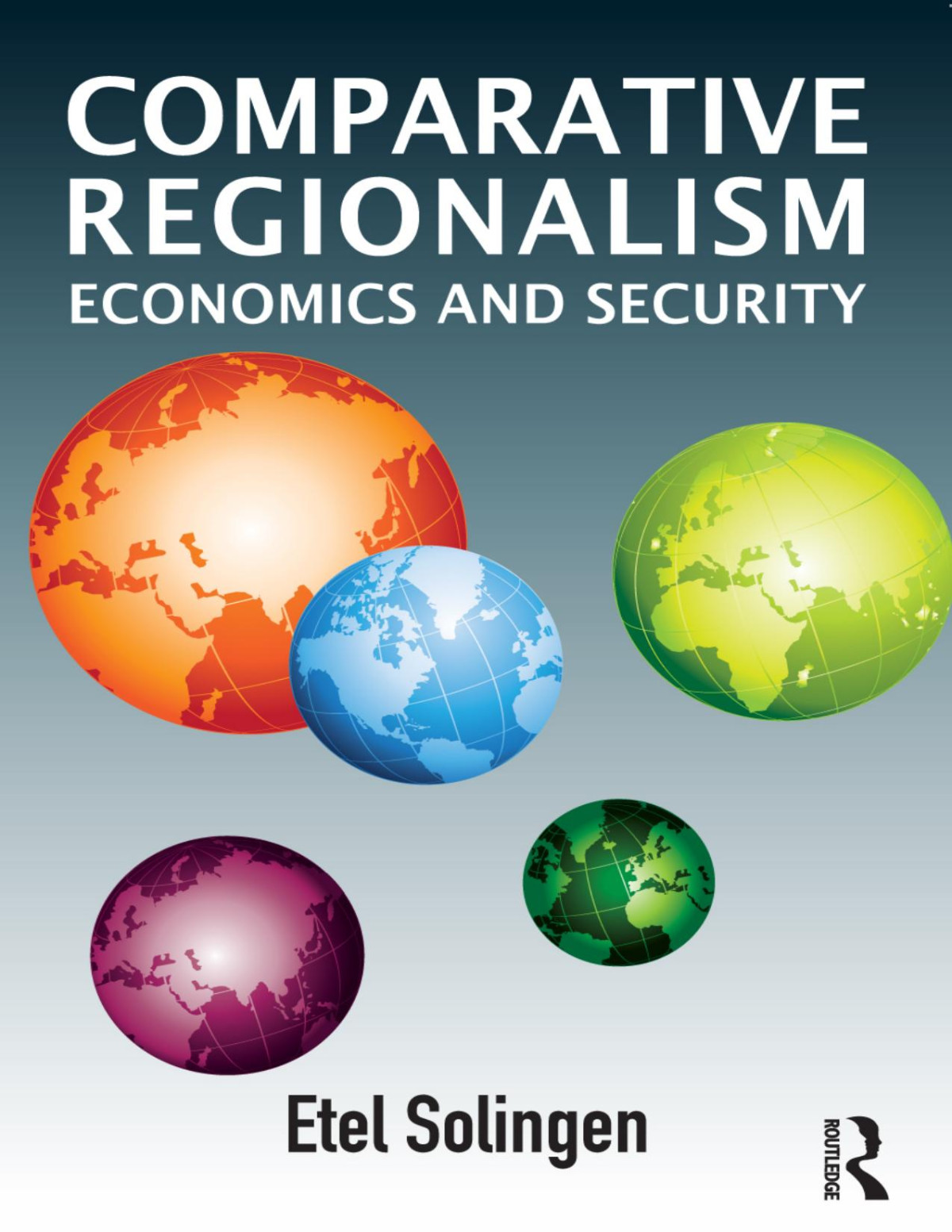

Most ebook files are in PDF format, so you can easily read them using various software such as Foxit Reader or directly on the Google Chrome browser.
Some ebook files are released by publishers in other formats such as .awz, .mobi, .epub, .fb2, etc. You may need to install specific software to read these formats on mobile/PC, such as Calibre.
Please read the tutorial at this link: https://ebookbell.com/faq
We offer FREE conversion to the popular formats you request; however, this may take some time. Therefore, right after payment, please email us, and we will try to provide the service as quickly as possible.
For some exceptional file formats or broken links (if any), please refrain from opening any disputes. Instead, email us first, and we will try to assist within a maximum of 6 hours.
EbookBell Team

4.8
74 reviewsThis book comprises key essays on comparative regionalism and, more broadly, on regional conflict and cooperation by Professor Etel Solingen.
The study of regionalism, a subject pioneered by Solingen in the 1990s, is now an established field of inquiry, with a large community of scholars and practitioners around the world. This book provides a window into an evolving conceptual framework for comparing regional arrangements, with a special emphasis on non-European regions. Framed by a comprehensive, previously unpublished introduction, the chapters provide a broad spectrum of analysis on domestic political economy, democracy, regional institutions, and global forces as they shape different regional outcomes and trajectories in economics and security. Themes as different as the regional effects of democratization in the Middle East and East Asia, the rise of China, Euro-Mediterranean relations, and regional nuclear trajectories are traced back to a common analytical core. The nature of domestic ruling coalitions serves as the pivotal analytical anchor explaining the effects of globalization and economic reform on different regional arrangements.
This collection provides a focal point that brings this work together in a new light and will be of much interest to students of regionalism, international relations theory, international and comparative political economy, international history and grand strategy.